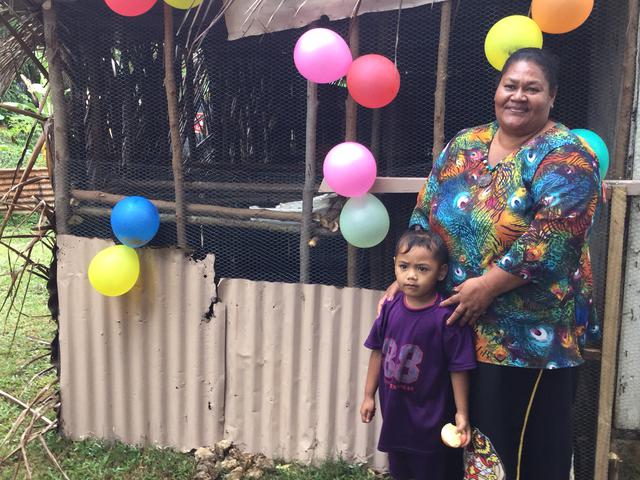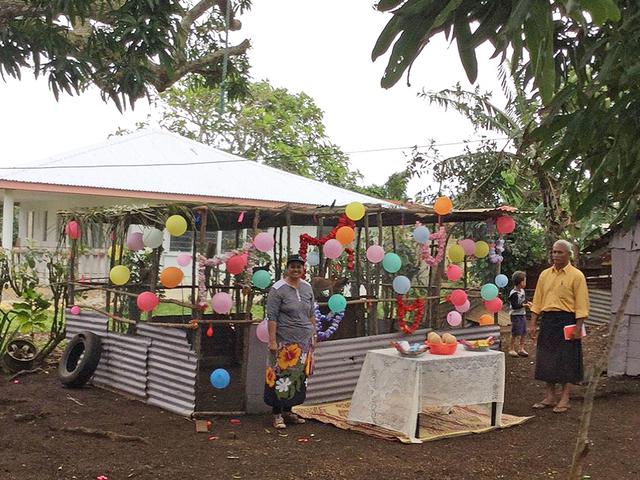Members of The Church of Jesus Christ of Latter-day Saints (Mormons) in Nakolo, Tonga recently joined with their neighbours to build a number of chicken coops.
The aim was to increase egg production, provide more nutritious meals for families, and reduce the threat of diabetes.
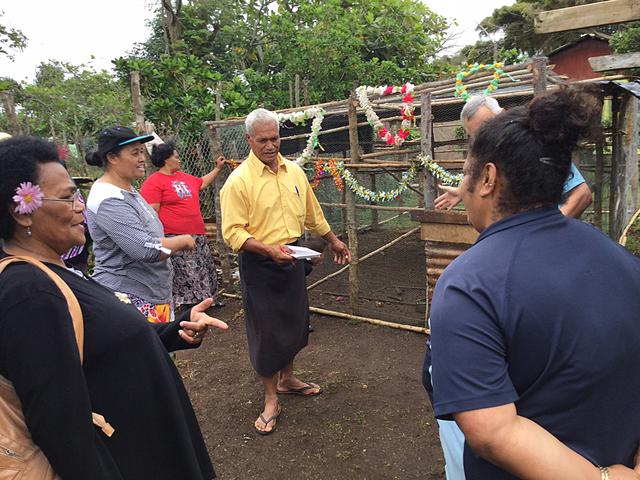
The Nakolo Women’s Poultry Project received donated chicken wire from LDS Charities—a humanitarian arm of The Church of Jesus Christ of Latter-day Saints—to fashion the coops.
Project organizers have a poultry committee with a president, vice president and secretary who keep track of egg and meat production from the project. Around 180 people are benefiting from the project.
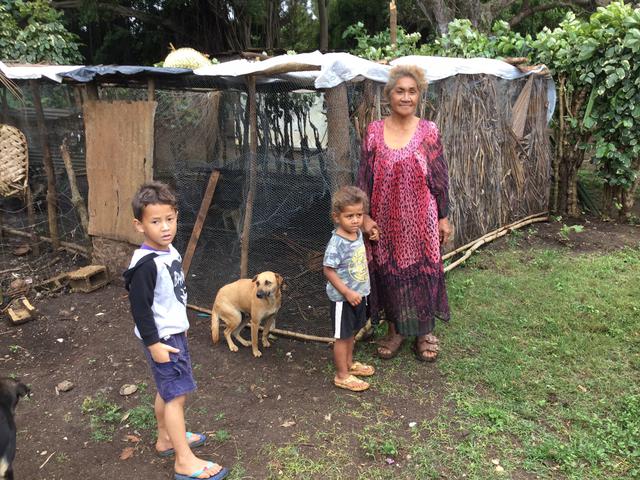
After viewing the coops, Elder Chris Jay Waddoups, a welfare missionary from the Church, said, “These women have really done an excellent job in using the chicken wire purchased by LDS Charities. They have taken great pride in building the chicken coops. We went to 32 residences that had built coops near their homes in the Nakolo Village. All of the families had purchased 10-20 laying hens and were so excited to have the eggs for their family use, for sharing with others, and for selling. They now have chickens that are providing eggs and meat for their families.”
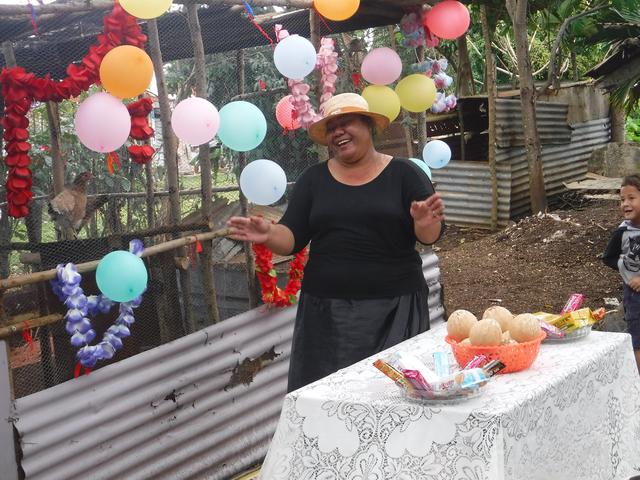
To celebrate the beginning of the project, several women decorated their chicken coops with balloons and ribbons. The coops featured creative designs, ranging from rectangular boxes to coops with two to three rooms, and even “upstairs apartments,” complete with ladders for the chickens to climb up. Some of the designs used tarps or cut coconut tree limbs so the chickens had sufficient shade.
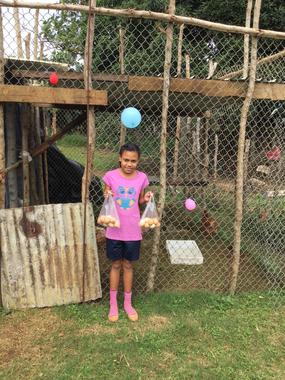
Seeing the many coop designs, Elder Waddoups remarked, “These looked like very pampered birds! I’m sure the excellent care they are receiving will result in higher output of eggs. One Methodist family said they were producing enough eggs to supply their minister and many members of their church with eggs! They gave us a carton of eggs to show their gratitude.”
Officials from the Tongan Ministry of Agriculture have also inspected the chicken coops and will provide 30 baby chicks from New Zealand for each family during the first part of November.
This will cost the families nothing, but they will be responsible for the feed and care of the birds. It will take eight weeks before these chicks will be mature enough to start laying eggs. Chickens can lay eggs for two years and will then be sold for meat or consumed.
The ladies have been encouraged to propagate enough chicks which they hold in reserve to replenish their laying hens.
The families are seeing the immediate benefit from the project and are producing enough cash flow for feed and care for the hens, plus savings for future replacement cost.
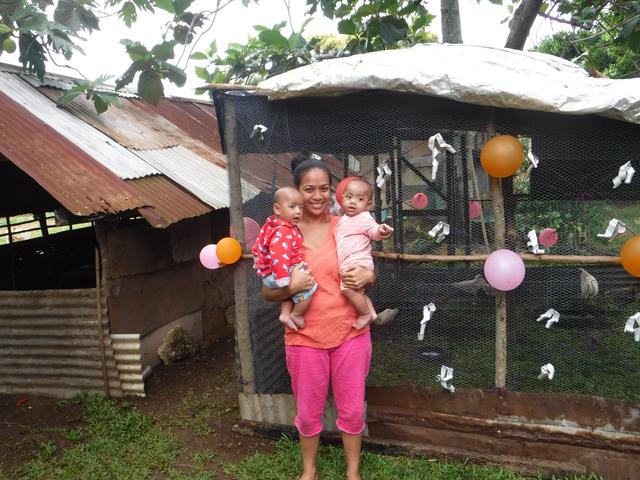
The chicken manure is being harvested and will be used as fertilizer for their gardens and plantations.
Elder Waddoups said, “The Tongan government strongly supports projects such as this after they have seen the completed chicken coops. They will provide additional training when the chicks arrive.”
